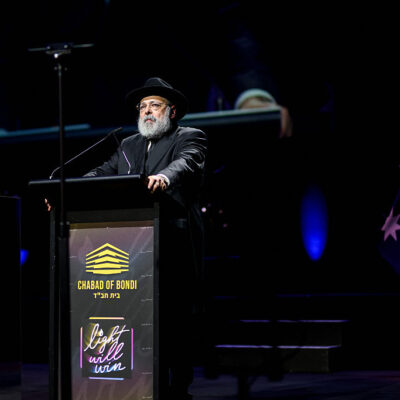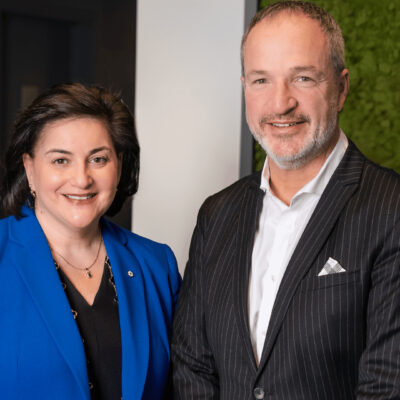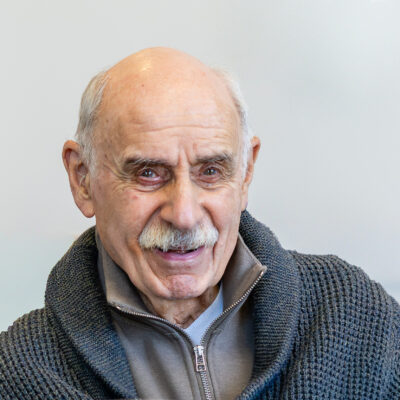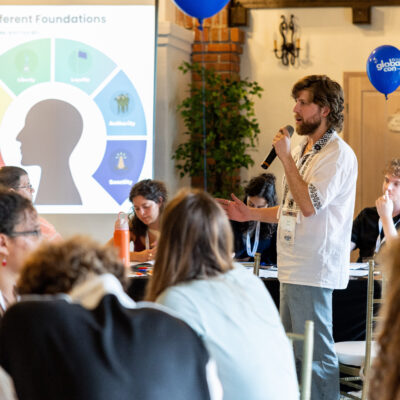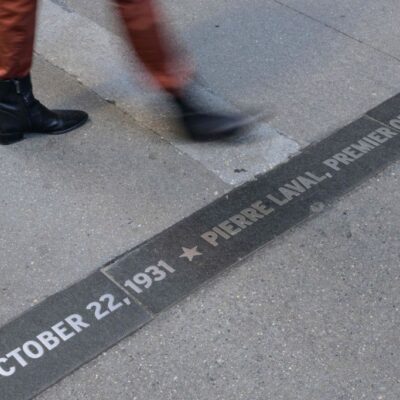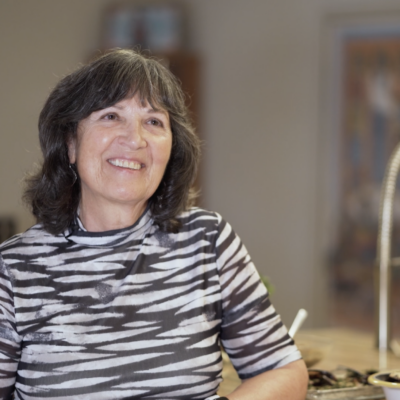Opinion
LEARNING OPPORTUNITY
Have Jewish philanthropists joined “The Surge” in studying Jewish wisdom?
This past year, many philanthropists have tried to support and grow “The Surge” in Jewish engagement in the post-Oct. 7 landscape. For good reason, funders want to capitalize on the increase in interest in Jewish identity and education that followed Hamas’s attack on Israel and the rise of antisemitism worldwide.
But has the surge in interest in Jewish learning impacted the philanthropic class?

SimoneN/Getty Images
Illustrative.
There is no data to tell us whether funders themselves have increased their own Jewish study or base of knowledge; but if funders are looking to increase Jewish participation and knowledge on the part of their grantees, it stands to reason that they would seek out those very things for themselves.
To aid philanthropists in their study, the Jewish Funders Network is releasing Jewish Wisdom for Philanthropy, the latest entry in our Guides for Intelligent Giving Series, which will be accompanied by a webinar series, “A Jewish Toolkit for Philanthropy.” Written to be accessible to those both with and without deep Jewish knowledge, the guidebook offers practical insights to help funders align their giving with Jewish principles and purpose. This content was developed in partnership with Lippman Kanfer Foundation for Living Torah, with additional support from the Templeton Foundation.
Traditional Jewish texts are often difficult to access for many modern Jews. One must know Hebrew, along with some Aramaic, and have an understanding of both the way the rabbis argue with each other as well as how they cite texts from other sources in order to understand and distill core messages and learnings. This guidebook seeks to cut through all of those layers and make thousands of years of accumulated wisdom available to anyone who might benefit from it. It introduces Jewish wisdom on philanthropy by explaining some foundational ideas about giving and then offering a practical toolbox for applying this wisdom in day to day life.
The guide seeks to encourage Jewish philanthropists to have a serious relationship with Jewish texts — to gain an understanding of Jewish philanthropy’s context, and how these texts wrestle with conflicting values. The guide walks readers through core questions such as why you should give — for yourself, or for others? — how to address hard choices in giving — like which populations or causes should you support — and how should one give — anonymously, or not?
There are no simple answers to these questions. Jewish wisdom provides some guidelines, but the key is for the reader to interact with the text in a way that will stimulate their own thinking. The wisdom of the text can be applied differently in different situations and call on the philanthropist to investigate their own reasons for giving and desired outcomes before making final decisions about where and how to give. In typical Jewish fashion, the questions raised in the texts should raise more questions for those reading them. In addition, different questions will arise from the same text at different times.
In the Ethics of the Fathers (5:22), Ben Bag Bag says, “Turn it again and again for everything is in it.” The “it” is the Torah, or Jewish wisdom. He teaches that one can encounter the same text at different times and learn different things from it. This is a teaching we hope people take from the guide and apply.
If philanthropists want deeper Jewish knowledge in the programs their grantees develop, then philanthropists themselves need to deepen their own study. It is our hope that this guidebook will serve as a first step for whom Jewish learning is something new and as another step in the journey for those who are already deeply knowledgeable.
Jews are known as “People of the Book.” Lifelong study is a value that we hold dear. In the Talmud (Kiddushin 48b), the Sages proclaim that “study is greater than action because it leads to action.” Learning, questioning and challenging expands our minds and causes new ideas and actions to develop. As communal leaders, philanthropists must constantly be learning and challenging themselves. What better way to do so than by diving into our shared wisdom?
The great sage Hillel teaches, “Do not say, ‘When I am free I will study,’ for perhaps you will not become free” (Ethics of the Fathers, 2:4). In other words, do not wait until you have free time to study. Seize the day now!
Rabbi Rebecca W. Sirbu is the executive vice president of the Jewish Funders Network.

 Add EJP on Google
Add EJP on Google